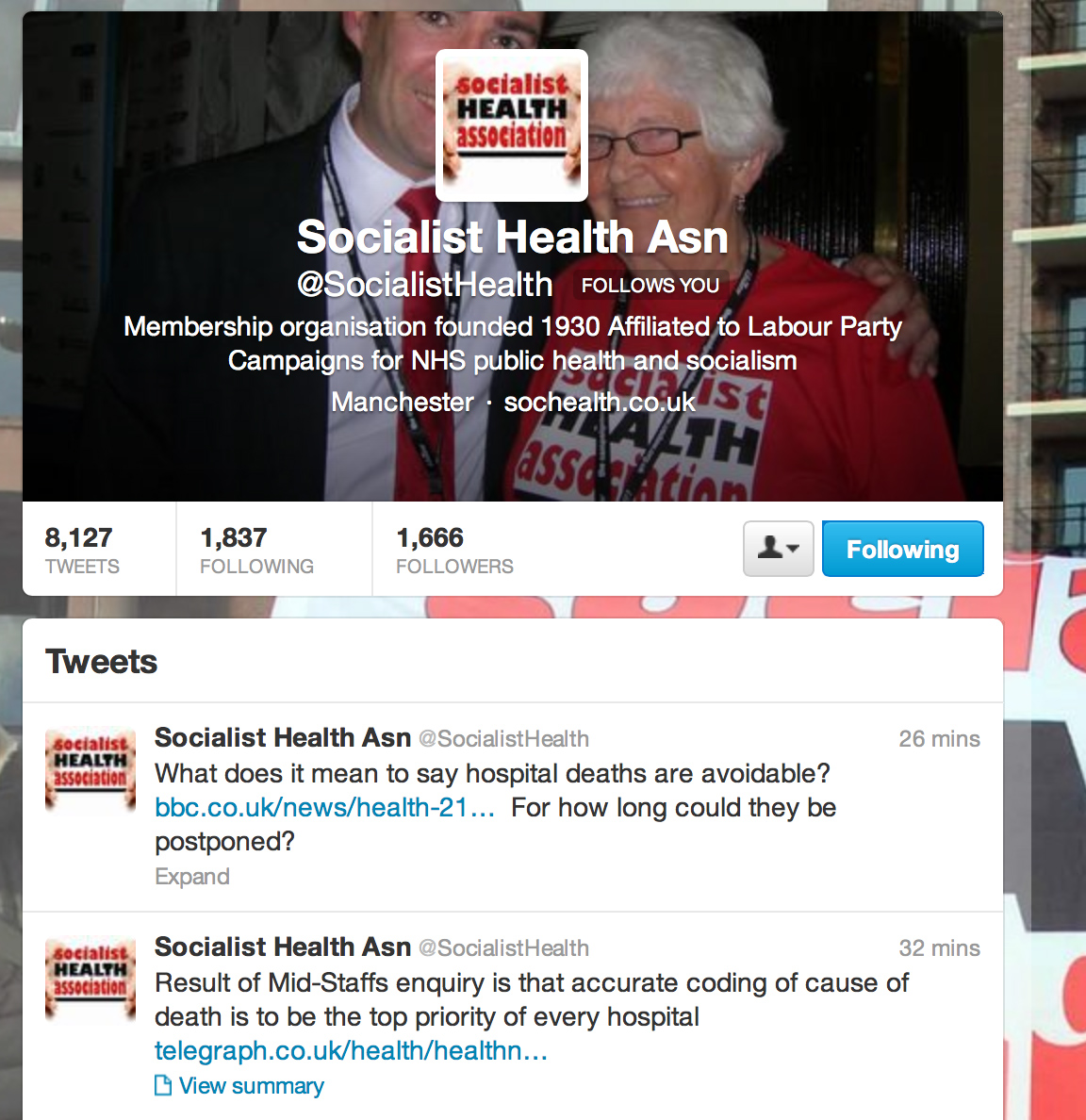Here is the @SocialistHealth to keep up-to-date with all the news from the Socialist Health Association [correct as of this morning]:
- The importance of Twitter is explained in the introduction:
“Social media is distinguished from traditional broadcast and print media by its ‘user generated’ content – the people who read it are the ones writing it and commenting on it. A prominent social media outlet is Twitter, the global online micro-blogging social network that is accessed by millions of users every day. Twitter enables its members to post text-based messages of up to 140 characters about any topic. The short format of the message – or tweet – is the defining characteristic of the service. Twitter and other social media provide users with the opportunity to share opinions widely and to interact with and potentially influence key decision-makers. As Twitter has entered mainstream use, the hashtag appears to have come of age politically. Recent regime changes in Egypt and Libya have been labelled ‘Twitter revolutions’, whilst the re-election of Barack Obama in 2012 was termed the first ‘Twitter election’ [1]. Whilst these terms may overstate the actual role of Twitter, it hints at Twitter’s soaring popularity and potential importance.
Twitter has become a popular platform for scrutiny of the UK coalition Government’s reform of the English National Health Service (NHS) [2].”
The authors identified the importance of “re-tweets”:
“People disseminate information deemed important on Twitter through ‘retweets’. This is when someone chooses to repeat a tweet by someone else, usually because they think the content is significant enough to merit sharing further. Twitter is well suited to studying influence because the diffusion of ideas can be tagged and observed, allowing us to determine how effective different ‘messengers’ of information are [10] and [11].”
The “most influential Tweeters” appear to be based in London:
“Determining the characteristics of tweeters is dependent on what information users are willing to enter about themselves on their public profile. Looking at the 100 most influential tweeters measured by the T-index, 77 of the 100 identified themselves as being from the UK with 43 stating they were based in London. No tweeter in the Top 100 identified themselves as being from or based outside the UK.”
The authors make interesting observations on the”non-hierarchical nature of Twitter”:
“Twitter represents a genuinely diverse platform for discussing health reform. Previously doctors have often limited themselves to their own networks, such as doctors.net. Twitter allows conversations to take place between regular NHS workers and opinion leaders such as journal editors, journalists and royal college presidents. This non-hierarchical approach is attractive in allowing voices of the frontline to be heard in an unfiltered manner, however, it may also reflect the small number of people using the medium. If it becomes more populated and widely used, it is possible that this effect will be diluted.”
And, finally, the NHA Party may have been influential in affecting the Reforms:
“Although not captured in the time frame of this analysis, the subsequent development of the National Health Action party (@NHAParty), a single issue political party campaigning against the reforms, may have been influenced in its aims by activity over Twitter, and includes prominent tweeters among its founding members and campaigns extensively using social media [17].”


